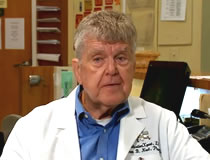March 30th, 2014
CHANGES IN BLOOD PRESSURE PARAMETERS ???
armonneel03302014 (these serious changes in establishing whether you fall within the new values that will determine if you have high blood pressure is surely a risk to the geriatric patient and needs to be discussed in detail with you health professional. As a Geriatric specialist in medications and their use in this age group, I have some serious resivations as in patient care "ONE SHOE DOES NOT FIT ALL". No changes should be made untl the patient is thoroughly aware of why they have blood pressure and what effects may occur if I allow my blood pressure to be consistently higher. I do know that those patients over 75 surely are not candidates for dosing adjustments to utilize the new parameters 150/90. Quick changes can cause a stroke and possible death. I thought I would post this for you plus a complete review of what causes High Blood Pressure. Read both sections in "As I see it" and "Health Care Alerts" As you know I feel that if you are over 55 years of age and whether you have identified High Blood Pressure or not should keep a ongoing resting blood pressure log. As we age things can change rapidly and all of a sudden you have a stroke that could have been avoided if you had taken the time to monitor the trends in your blood pressure log. All you need to do is buy a wrist monitor the one I use personally and recommend the following:
1. CVS Wrist Monitor Advanced #800228 (Around $70.00)
2. Clip Board or Notebook to hold your blood pressure log
3. Blood Pressure Log Sheet (Free: go to the "Patient Assessment Forms" on this
site, scrool down to the Blood Pressure Log Sheets and print out as many as
many as you want.
Be responsible and take your blood pressure and Pulse AM (the first thing you do when you sit up on the bed (record on log sheet) and then again PM (the last thing you do before you cut out your bed side light.
Keep an accurate and up to date record which will allow you to see how your blood pressure is doing and then when you go to your health professional you have an accurate record to discuss your blood pressure and the need for blood pressure medicine.
Blood Pressure monitoring is essential and all should do it. Example: you go to the health professional and in the process your blood pressure is taken and the provider says you have high blood pressure. With your blood pressure log you have the most essential health record to discuss and evaluate you true need for treatment. Your health professional cannot tell from one reading of your blood pressure what is really going on. Your log will clearly show a history and trends up or down.
Please read both of these post and START YOU A RESTING BLOOD PRESSURE LOG, as I have outlined in this post. You will be glad you did.
SATURDAY, March 29, 2014 (HealthDay News) --
About 5.8 million American adults may no longer be prescribed drugs to treat high blood pressure under recently revised guidelines, according to a new study.
In February, the Eighth Joint National Committee released controversial guidelines that relaxed blood pressure goals in adults 60 and older from 140/90 to 150/90. The guidelines also eased blood pressure targets for adults with diabetes and kidney disease.
In this study, researchers used blood pressure data collected from more than 16,000 Americans between 2005 and 2010 to assess the impact of the revised guidelines.
The proportion of adults considered eligible for medication to treat high blood pressure would fall from about 41 percent to 32 percent, the authors concluded in the study published online March 29 in the Journal of the American Medical Association and presented Saturday at the American College of Cardiology annual meeting in Washington, D.C.
The researchers also said that 13.5 million adults -- most of them older than 60 -- who were considered to have poorly controlled blood pressure would now be viewed as having adequately managed blood pressure. That includes 5.8 million adults who would no longer require blood pressure pills.
"The new guidelines do not address whether these adults should still be considered as having hypertension. But they would no longer need medication to lower their blood pressure," study lead author Ann Marie Navar-Boggan, a cardiology fellow at Duke University School of Medicine, said in a Duke news release.
One in four adults older than 60 currently receives treatment for high blood pressure, according to the researchers.
"These adults would be eligible for less intensive blood pressure medication under the new guidelines, particularly if they were experiencing side effects," Navar-Boggan said. "But many experts fear that increasing blood pressure levels in these adults could be harmful."
Even under the new guidelines, about 28 million U.S. adults still have uncontrolled high blood pressure and more than half of them don't receive treatment, said Navar-Boggan, who noted that uncontrolled high blood pressure is a risk factor for heart attack and stroke.
More information
The U.S. National Heart, Lung, and Blood Institute has more about high blood pressure.
- September 23rd, 2012
FDA Reviews Possible Mirapex Heart RiskRead - December 4th, 2014
Sulfonylureas Tied to Higher Mortality in DiabeticsRead - November 19th, 2012
Advair: How Safe Is This Drug ???Read - April 22nd, 2013
Bone Drug Lowers Levels of Bone Growth MarkersRead - October 28th, 2014
Is the Role of Beta-Blockers in Coronary Artery Disease Treatment Changing?Read
Geriatric Nutrition
Without good nutrition, positive drug therapy outcomes are very difficult to obtain, For the best in Geriatric Nutritional Information
Find out more Optima SolutionsContinuing Education
Each month we will post an analysis of specific aspects of government long-term healthcare regulations.
Find out more


